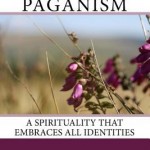From Michael York:
In preparation for a paper for the Society for the Scientific Study of Religion’s annual conference, I am seeking answers from pagan practitioners to the following questions. The title of my presentation is “Religion and Theology: A Contemporary Western Pagan Perspective on Identity Formation and Modern Policy.” The analytical framework I propose to use is one that differentiates paganism (broadly of course) from Abrahamic, dharmic and secular religions or perspectives, but for the questionnaire itself that differentiation need not be considered if it does not seem to be relevant for any respondent. There are five questions overall and concern theological and other distinctions of paganism from other religions. I welcome any and all answers that anyone wishes to supply. These answers will be presented anonymously in my paper unless a respondent explicitly allows me to use her or his name.
The questions are:
(1) How is paganism different?
(2) What is the significance of its difference?
(3) What are the key issues in a modernity project?
(4) What can paganism contribute to these issues in contrast to contributions from other religions?
(5) How can or does paganism work with other religions in addressing issues of economic imbalance, corporate power, industrial pollution, global warming, disaster relief and constructive cooperation?
I am most appreciative for any responses anyone is able to return to me. My email address is [email protected].
Here are my personal responses to these questions:
(1) How is paganism different?
Paganism is different from non-indigenous religions in that its goal is to integrate spirit and matter, not for spirit to escape matter. Indeed, whilst many religions have succumbed to the Cartesian split between mind and body, it could be argued that Paganism has resisted this split (though not entirely escaped it).
Paganism is different from indigenous religions in that they are specific to a particular culture and people; Paganism tends to include specific ethnic elements, such as Celtic, Norse, Hellenic, Roman, etc, but is not restricted to a particular ethnic group.
Paganism does not claim to be “cosmically necessary” (in other words it is not needed for an individual to have a pleasant afterlife); nor does it claim a monopoly on the truth. Paganism does claim to provide a way for individuals to relate to the world around them.
Paganism is an umbrella term for a number of different religious traditions, but it is possible to belong to more than one of them without conflict with the others.
Pagan traditions don’t have a single canonical text like the Bible.
Most Pagan traditions affirm the sacredness of (consensual) sex.
(2) What is the significance of its difference?
The differences are significant in that Paganism(s) offer(s) a way of being in the world that is life-affirming, sexuality-affirming, and LGBT-inclusive.
Pagans can regard deities as a metaphor and perform rituals with other Pagans who believe more literally in the existence of deities.
(3) What are the key issues in a modernity project?
I am not sure what the phrase “modernity project” is intended to signify. if you mean the relationship between modern life and Paganism, I think there is no conflict, because the Pagan revival occurred in a modern context.
Pagans don’t have a problem with modern life being in conflict with the commandments of a canonical text, because we don’t have a canonical text, and because the source of our ethics is reason, conscience, and empirical evidence.
Many of us do have a problem with rampant consumerism, capitalism, and corporate greed, because we want to live sustainably and in a way that respects the planet and the other beings with whom we share it.
However, the question does not take account of postmodernism. I would define modernism as the tendency to assume that facts can be objectively known, that it is possible to take an objective stance on any given issue, and that economic and social progress are inevitable.
Postmodernism, on the other hand, assumes that all knowledge is subjective, that everyone’s perspective is coloured by their circumstances, and that progress is not inevitable, and not automatically desirable if it leads to living social injustice or environmental destruction.
(4) What can paganism contribute to these issues in contrast to contributions from other religions?
Pagans are particularly well-placed to discuss environmental ethics and sustainability, because our outlook is very similar to that of deep ecology. Other religions may have the theology and the ethics to cope with these issues, but they don’t necessarily have the mythology and the stories to illustrate them.
(5) How can or does paganism work with other religions in addressing issues of economic imbalance, corporate power, industrial pollution, global warming, disaster relief and constructive cooperation?
Pagans can and do participate in interfaith dialogue and other work (usually as individuals rather than as Pagans). These efforts are sometimes hampered by other religions’ prejudice against Pagans; sometimes by the relatively small size of the Pagan community; and sometimes by Pagans’ suspicions that interfaith dialogue is thinly-disguised proselytising (not a view that I personally hold, but it is widespread in the Pagan community).
A great set of answers to the five questions was posted by Ian C. at Into the Mound.















